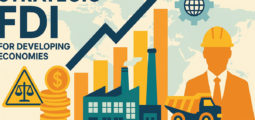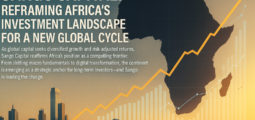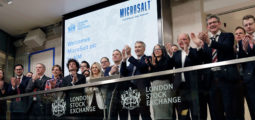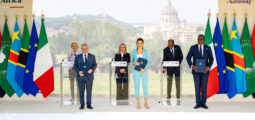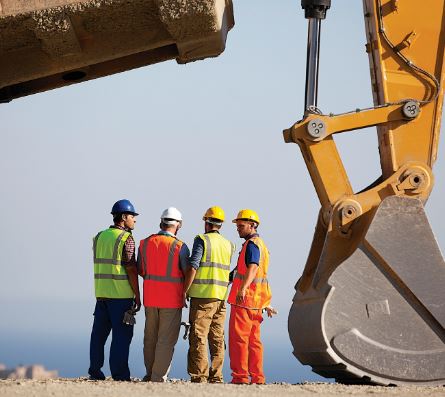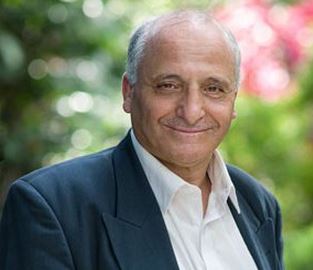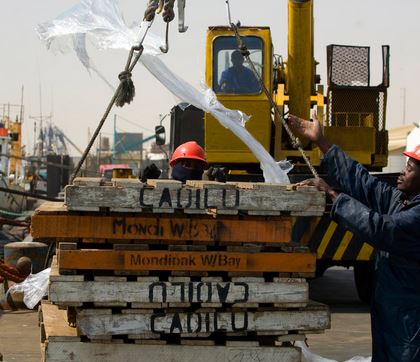[vc_row][vc_column][vc_column_text]
Middle East
 The Middle East (including Egypt but excluding North Africa) had over 684m people spread over 17 countries in 2018. Total GDP was 3.7 trillion USD and average GDP per capita was 18,581 USD. Total exports were 1.5 trillion USD. Civilisation began in the Middle East with the emergence of the Sumerians around 4000 BC. They invented writing and their cuneiform writings survive to this day. Around 3,000 BC, Ancient Egypt began to develop along the Nile while in 2300 BC the Akkadian empire formed in Southern Mesopotamia. Following the Akkadians, the Babylonian empire emerged with Hammurabi’s code of law arguably its most famous artefact. After the Babylonians a procession of empires ruled over the Middle East including the Assyrians, Medes, Persians, Macedonians, Romans, Parthians, Sassanids, and Byzantines. In the 7th century, Islam emerged from Mecca and Medina and within three generations the Arabs had established a Caliphate that covered the Arabian Peninsula, Persia, North Africa, and parts of Spain. The Seljuq Turks captured Anatolia in the 7th century ending Byzantine rule there. The Arabs and Turks played an important role in trade along the Silk road, bridging Asia and Europe. Crusaders arrived in the Levant in the 11th century after pleas of help from the Byzantines and maintained the Kingdom of Jerusalem for around 100 years before being defeated by the Seljuks. The Seljuks were displaced by the Mongols who in turn were replaced by the Ottomans. The Ottomans remained the dominant power until the 20th century. In the 16th century the Portuguese reached Arabia and established several forts along the Persian Gulf. In 1798, Napoleon invaded Egypt but French rule quickly turned to semi-autonomy from the Ottomans. In 1869, the Suez Canal was opened transforming trade in the region. The British established a military presence in 1882 to safeguard trade to India. The British also signed treaties with the various rulers in the Trucial Coast on the periphery of Ottoman influence. They maintained their influence in the region until the early 1970s, acting as guardians for many of the smaller states. When they left, US influence increased. The modern Middle East emerged after WW1 with the fall of the Ottoman empire. The British and French decided on the new borders in the Sykes-Picot agreement. The 1917 Balfour declaration controversially paved the way for the establishment of Israel in 1948 . Oil was first discovered in Saudi Arabia in 1938. It heralded the transformation of the region. In the 1950s and 1960s, the Arab oil states took greater control of the oil industry, nationalising their national oil industries and forming OPEC in 1960. In 1967 and 1973 they flexed their new geo-political muscles with oil embargoes that demonstrated Arab solidarity against Israel. The 1979 Islamic revolution in Iran changed the geo-political dynamic in the region. As did the Iraqi invasion of Kuwait in 1990 and the first and second Gulf Wars. The 2010, Arab Spring saw democratic change in several countries in the region, but it also resulted in a civil war in Syria and instability in Iraq. In 1981, the Gulf States formed the Gulf Cooperation Council (GCC) signalling the desire for greater economic integration. There have also been strong efforts by individual GCC countries to diversify their economies. In recent years this has seen increased investment in ICT and start-ups.[/vc_column_text][/vc_column][/vc_row][vc_row][vc_column][vc_column_text]
The Middle East (including Egypt but excluding North Africa) had over 684m people spread over 17 countries in 2018. Total GDP was 3.7 trillion USD and average GDP per capita was 18,581 USD. Total exports were 1.5 trillion USD. Civilisation began in the Middle East with the emergence of the Sumerians around 4000 BC. They invented writing and their cuneiform writings survive to this day. Around 3,000 BC, Ancient Egypt began to develop along the Nile while in 2300 BC the Akkadian empire formed in Southern Mesopotamia. Following the Akkadians, the Babylonian empire emerged with Hammurabi’s code of law arguably its most famous artefact. After the Babylonians a procession of empires ruled over the Middle East including the Assyrians, Medes, Persians, Macedonians, Romans, Parthians, Sassanids, and Byzantines. In the 7th century, Islam emerged from Mecca and Medina and within three generations the Arabs had established a Caliphate that covered the Arabian Peninsula, Persia, North Africa, and parts of Spain. The Seljuq Turks captured Anatolia in the 7th century ending Byzantine rule there. The Arabs and Turks played an important role in trade along the Silk road, bridging Asia and Europe. Crusaders arrived in the Levant in the 11th century after pleas of help from the Byzantines and maintained the Kingdom of Jerusalem for around 100 years before being defeated by the Seljuks. The Seljuks were displaced by the Mongols who in turn were replaced by the Ottomans. The Ottomans remained the dominant power until the 20th century. In the 16th century the Portuguese reached Arabia and established several forts along the Persian Gulf. In 1798, Napoleon invaded Egypt but French rule quickly turned to semi-autonomy from the Ottomans. In 1869, the Suez Canal was opened transforming trade in the region. The British established a military presence in 1882 to safeguard trade to India. The British also signed treaties with the various rulers in the Trucial Coast on the periphery of Ottoman influence. They maintained their influence in the region until the early 1970s, acting as guardians for many of the smaller states. When they left, US influence increased. The modern Middle East emerged after WW1 with the fall of the Ottoman empire. The British and French decided on the new borders in the Sykes-Picot agreement. The 1917 Balfour declaration controversially paved the way for the establishment of Israel in 1948 . Oil was first discovered in Saudi Arabia in 1938. It heralded the transformation of the region. In the 1950s and 1960s, the Arab oil states took greater control of the oil industry, nationalising their national oil industries and forming OPEC in 1960. In 1967 and 1973 they flexed their new geo-political muscles with oil embargoes that demonstrated Arab solidarity against Israel. The 1979 Islamic revolution in Iran changed the geo-political dynamic in the region. As did the Iraqi invasion of Kuwait in 1990 and the first and second Gulf Wars. The 2010, Arab Spring saw democratic change in several countries in the region, but it also resulted in a civil war in Syria and instability in Iraq. In 1981, the Gulf States formed the Gulf Cooperation Council (GCC) signalling the desire for greater economic integration. There have also been strong efforts by individual GCC countries to diversify their economies. In recent years this has seen increased investment in ICT and start-ups.[/vc_column_text][/vc_column][/vc_row][vc_row][vc_column][vc_column_text]
Grant Thornton UAE: It’s Your Choice – Business vs Risky Business
World Investment Forum: Seeking Ways to Unlock the Idle Trillions
Cityscape Launches Inaugural Event in Kuwait
Sustainable Stock Exchanges: Urgent Need for Simple Metrics
Sustainable Stock Exchanges: The Relevance of Green Indices
World Bank Group: Can Resource-Financed Infrastructure Fix the Natural Resource Curse?
Dr Rachid Yazami: A Battery-Powered Future
New Report Identifies Major Clean-Tech Market Opportunity for Small Businesses in Developing Countries
New UN Report Calls for Major Changes in Global Economic Governance, Management
Otaviano Canuto, World Bank Group: Liquidity Glut, Infrastructure Finance Drought and Development Banks
World Bank Reaffirms Commitment to the People of Egypt and the Country’s Development Priorities
Making Every Drop Count: Reducing Water Loss in the Middle East and North Africa Region
Loading, Please Wait!
This may take a second or two.











